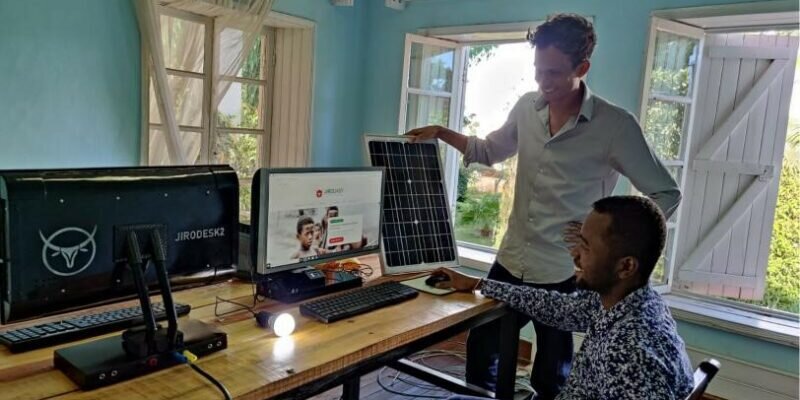Hardware Things: On rural schools and electric vehicles
Hope you’re doing well.
If you’ve missed travelling due to the pandemic as much as I have, here’s something I think you will love: Drive & Listen.
In case you missed it, here is last month’s newsletter.
First Things First
Madagascar is a beautiful island country, located in the Indian Ocean 400km away from the African shore. It’s probably one of the most difficult places to start a hardware startup, because the supply chain to the island could prove quite tricky.
The country is also under-electrified, a situation that has attracted huge investment from outfits like the Off-Grid Market Development Fund. Three years ago, Yann Kasay hacked a 40W solar generator to power small homes and it went on to do really well. But he found that 40W was simply not good enough to power computers for a useful length of time.
Yann set out to build a solar computer, a CPU with an integrated charging controller and battery system so that solar panels could be connected directly to the computer; this is definitely not an iMac but it meets the needs for a very important segment: rural schools.
While solar power has attracted a lot of investment funding in Africa recently (the off-grid market size is projected at $24 billion), many of these investments are in companies installing low-rated systems for simple use cases like running a barber shop.
My newest piece, on the Jirodesk II computer’s product development process, complete with how its battery comes from a recycling shop in Kenya.

Jirogasy’s solar computers power offgrid schools in Madagascar — Hardware Things
How a solar computer is enabling students in rural Malagasy schools have access to science education.
Things I Enjoyed Reading
With more electric vehicles worldwide as a response to climate change and the need to reduce vehicle emissions, it is almost certain that the continent will become a bigger dumping ground for used cars - as other economies get rid of their ICE-powered vehicles. Edna Odhiambo argues in Al Jazeera that this calls for a continent-wide EV agenda following the likes of South Africa, Egypt and Sudan who have already banned used car imports.
Complement that op-ed with this March 2021 report on the opportunities to develop the Lithium-Ion battery value chain in South Africa with a focus on mineral refining and battery recycling.
Opibus, a Kenyan outfit previously mentioned in June 2019 who focus on converting ICE vehicles to electric, are entering a new phase of their business. Having built their MVP for safaris, as quieter vehicles disturb wildlife less, they’re now planning to move their technology to transit buses.
Interesting Things
Watre.io by Tech Era is a control system for household water supply. [Ghana]
Film Anatomie is building set vehicles for film crews. [Nigeria]
XIOT makes “hackable” modular devices for controlling building applicances. [Egypt]
Davis & Shirtliff released a new MPPT hybrid for controlling AC motors. [Kenya]
Something To Apply For
The GSM Association is receiving applications for their GSMA Innovation Fund for Digital Urban Services from SMEs deploying digital technology to deliver urban services in the Plastics and Waste Management, Water, Energy, and Sanitation sectors.
Deadline: July 1.
Company Spotlight
In South Africa, PeleBox is building dispensing lockers for hospital pharmacies that reduce wait times for patients.
Side note: PeleBox works like a reverse PillPack. And during a conversation with the CEO recently, it occurred to me that e-commerce delivery on the continent could actually work in the same fashion: lockers that open with a one-time password located in public buildings that are central hubs.
Until next time,
Chuma.
Want to promote something to an audience interested in hardware and manufacturing on the continent? You can now include a Sponsored Post in the newsletter.